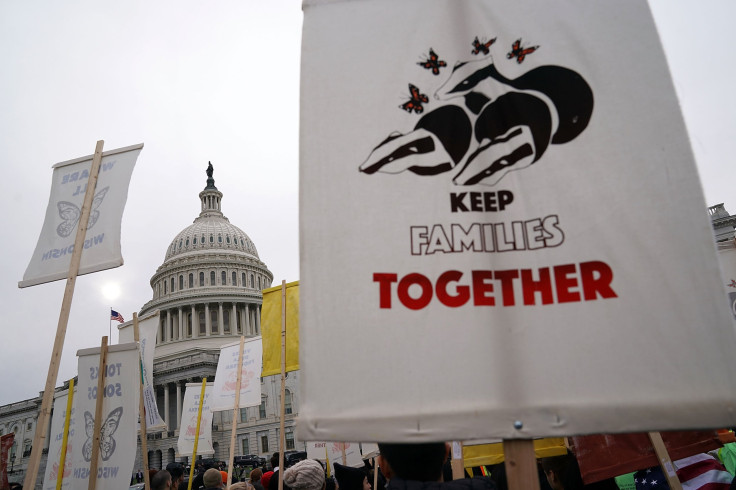200,000 Children Born In US To Salvadoran Parents Face Separation From Families

The United States Department of Homeland Security on Monday will announce whether the Trump administration will extend the Temporary Protected Status (TPS) — a temporary immigration program for Salvadorans living in the U.S. for at least two decades — or will they have to face deportation. If the TPS is not extended, then nearly 200,000 children would be at a risk of being separated from their Salvadoran parents.
Addressing a press conference, Foreign Minister Hugo Martinez said that 190,000 Salvadorans in U.S. “have procreated 192,000 boys and girls who are American citizens and who have all the rights of American citizens.”
Martinez said that if the TPS is cancelled, then for the Salvadorans, “this would mean breaking up families that are in the United States.”
TPS is granted by the federal officials to the citizens of countries facing extreme hardship due to either a natural calamity or war which makes it difficult for refugees from those nations to return safely. To decide whether to extend the TPS or not, the U.S. government would review the present situation of the particular nation and if it has largely recovered, then the citizens of that country living in the U.S. would be asked to return.
Earlier, the U.S. government had cancelled TPS for 59,000 Haitians and 5,300 Nicaraguans who came to U.S. after an earthquake in 2010. The government was planning to do the same for Hondurans and Salvadorans. However, according to a report by the AFP, children born in the U.S. would have the right to stay in America but this fact gives no right for their parents to stay in the country.
Martinez informed that the El Salvador’s consulates in U.S. were giving advice to Salvadorans on what to do. He further said his government did not want the families to be separated. He added it would be a difficult situation “especially for those boys and girls under the age of 21.”
Jean Manes, the U.S. ambassador to El Salvador, called it “a tool for an emergency situation,” reported the Washington Post. The publication further reported that in Nov. 2017, Manes wrote, “Every year we have to justify that the current situation is the result of the 2001 earthquakes and it is becoming increasingly difficult to do so.”
After earthquakes devastated the Central American nation, the U.S. had extended its TPS program to Salvadorans in 2001. The last extension of the program runs out on Mar. 8.
Both the Republican and Democratic administrations had in the past ended TPS for some countries. After a number of West African countries recovered from Ebola outbreak sickness, former president Barack Obama in May 2017 ended the TPS for thousands of citizens from Sierra Leone, Guinea, and Liberia. In another case, in 2005, the then President George W. Bush’s administration also ended TPS for the Caribbean island of Montserrat.
© Copyright IBTimes 2024. All rights reserved.





















